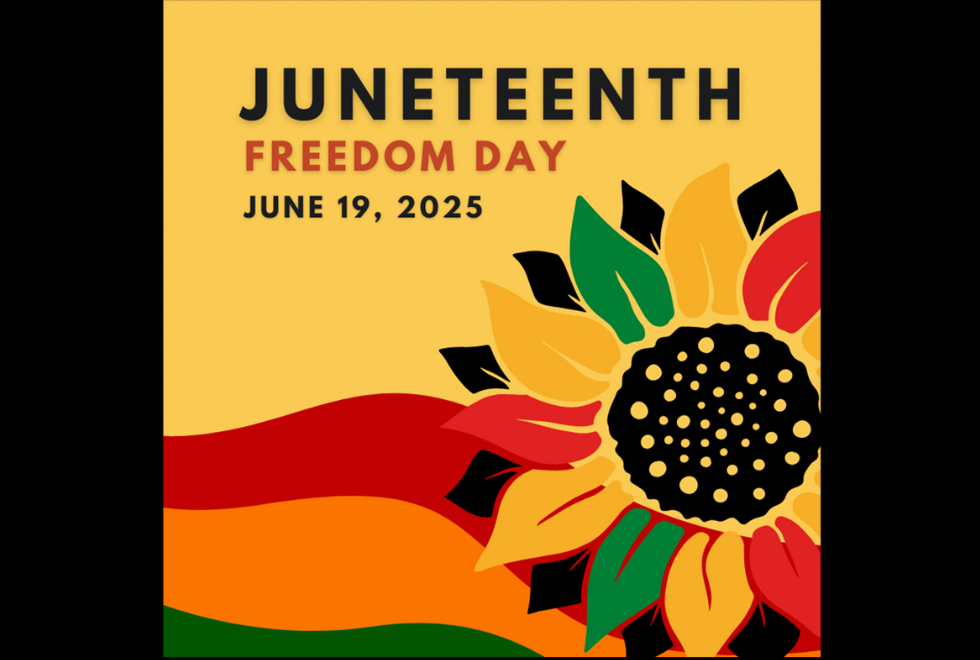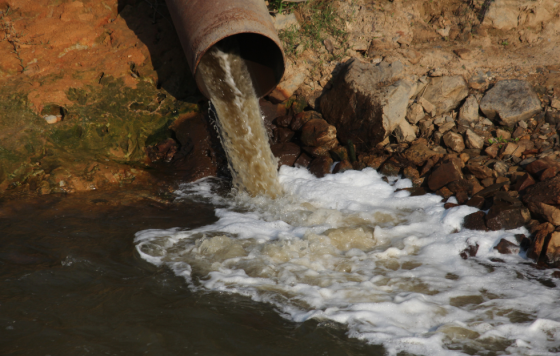
Juneteenth, celebrated on June 19th, commemorates the end of slavery in the United States and is a powerful reminder of the ongoing fight for equality. This day is not only about reflecting on past struggles but also about recognizing challenges we currently face that disproportionately affect marginalized communities. One such critical issue is environmental justice.
Environmental justice addresses the unfair exposure of low-income and minority communities to environmental hazards. Historically, Black and brown communities have faced higher risks of pollution, inadequate access to clean water, and insufficient green spaces. These environmental inequities contribute to health disparities and perpetuate social and economic disadvantages.
Recognizing environmental justice on Juneteenth underscores the connection between racial equality and a healthy environment. It highlights the need for policies that protect vulnerable communities from environmental harm and ensure equitable access to natural resources. By integrating environmental justice into Juneteenth celebrations, we honor the legacy of resilience and continue the fight for a fairer, more just society.
Clean Water Action is dedicated to fighting for environmental justice on Juneteenth, and every day.
Happy Juneteenth!
Make a Donation Today to Support Our Environmental Justice Work!
National
The Bipartisan Infrastructure Investment and Jobs Act (BIL), signed by President Biden in November 2021, created historic investments in water infrastructure and an opportunity to address historic inequity. The law requires that 49% of key funding go to “disadvantaged communities” and be given in the form of principal forgiveness loans or grants. This is important because communities of color, including Black communities, have often faced barriers to accessing the State Revolving Funds available for drinking water, sewage treatment, and other projects. Clean Water Action is working to ensure that these funds are spent equitably and effectively. For example, we want to understand how states are reaching communities that have not benefitted from funding programs in the past and to make recommendations on how they can improve their communications and engagement with the public. In December 2023, we released Equitable and Effective Infrastructure Spending: Increasing Transparency and Accessibility in State Revolving Fund Programs. The report assessed state funding programs’ accessibility, which is key to overcoming historic barriers communities have faced in receiving these funds. Improving access to funding for modernized drinking water systems and better wastewater treatment is one example of how we can address the environmental injustice and disproportionate impacts that many Black communities have faced.
California
Clean Water Action’s top environmental justice priority this summer is the passage of SB 1255 (Durazo), the Low-Income Rate Assistance Act, which would require the state’s large and medium water agencies to provide bill assistance for its most vulnerable households. We’re also kicking off a project this month in the community of Lost Hills (Kern County), where community advocates will spend the next 2 years creating a plan to rescue their overburdened community from toxic air threats and reduce greenhouse gas emissions. Our ReThink program continues to work with mom-and-pop restaurants – overwhelmingly run by persons of color - in LA and the Bay Area to reduce their use of plastics by replacing single-use items with reusable foodware.
Connecticut
The Connecticut team continues to lead efforts to ramp up energy efficiency services for low-income residents in environmental justice communities in Waterbury, CT. Sharod Blizzard, CT’s Energy Justice Organizer and lifelong Waterbury resident leads this work with support from the mayor’s office, municipal and state leaders, and local partners. Energy efficiency programs not only help vulnerable residents in these communities save money on energy bills but make their homes more comfortable and reduces GHG emissions. We’re thrilled that Sharod was recently appointed to the Governor’s Council on Equity and Environmental Justice Advisory Council due to his work. The CT team is also working with Dr. Mitchell, a renowned Environmental Justice leader, and many local groups on an EPA Community Change grant to further build out this work in CT.
DC
Clean Water Action in DC continues to support the Anacostia Parks and Community Collaborative (APACC), a coalition of organizations focused on DC neighborhoods along the Anacostia River. They continue to advocate for fair investment in the Anacostia Park and green space in disfavored communities across DC. Beyond this APACC is working to ensure the impacts of climate change, including flooding and extreme heat, are equitably addressed in the most impacted neighborhoods in South East DC, as well as working with DC government to support fair and forward-looking regulations and budgeting.
Maryland
In Baltimore we continue to push the City to make right their assistance program to help residents facing basement sewage backups. Their current program fails to tackle the problem and leaves people to deal with a raw sewage nightmare on their own. In Maryland we are hopeful about the state’s draft heat stress standard that requires that heat stress plans factor in the protective equipment a worker needs, which could put them at higher risk for heat illness. This has been a critical issue for farmworkers in the state.
Massachusetts
Clean Water Action remains dedicated to grounding our campaigns in Environmental Justice with leadership from grassroots voices in frontline communities. Our advocacy includes pushing legislation to improve indoor and outdoor air quality in frontline communities. We proudly continue our grassroots efforts by organizing with several coalitions across the state and hosting powerful rallies like the one in Roxbury on World Asthma Day, where community members, partner organizations, and local elected officials demanded clean air for all. Additionally, we enacted a strategy to make energy efficiency outreach programs accessible to language-isolated homes. We’re continuing our work with residents and community leaders in the heavily impacted cities of Malden and Chelsea to get lead out of drinking water. The Youth Action Collaborative, based in Malden High School, is a new and remarkably successful program. It has empowered students in impacted and underserved communities with the necessary skills to address their community's numerous environmental injustices. We are thrilled to see our Environmental Justice work expanding into new areas while maintaining our strong and longstanding partnerships in the Environmental Justice community across the state.
Michigan
We continue to assist in leading Michigan’s first-ever Environmental Justice caucus in the state legislature, where the topics of corporate accountability, water affordability, and cumulative impact legislation are being discussed. Last year, we launched our statewide campaign in support of comprehensive water affordability legislation that includes a ban on water shutoffs, a cap on water rates for low-income families, and the creation of a water affordability fund. We are leading the energy democracy conversation and continue to organize allies in support of polluter pay and utility accountability. These are critical justice issues because pollution usually hits low-income black and brown communities hardest. In June, we are focusing on ensuring significant climate resilience and water infrastructure funding are included in the state's budget.
Minnesota
While Minnesotans pride themselves on our state’s quality of life, that quality is not shared equally. Despite an overall reputation for being a great state to live in, Minnesota has some of the worst racial disparities of any state in the US. This goes beyond economic factors and includes health issues caused by disproportionate exposure to pollution. Last year, Clean Water Action helped Minnesota become the third state to pass a comprehensive cumulative impacts law, with the goal of addressing the harm that polluting industries have caused to our historically marginalized communities. This law is now going through a robust public engagement process, focused on bringing in environmental justice communities to shape how the law will be implemented. We have also seen and supported major wins in environmental justice communities fighting to shut down polluting facilities and build community-led and owned projects, such as the East Phillips Urban Farm Project.
New Jersey
Until June 19, 1865, news of the Emancipation Proclamation did not reach everyone. Efforts to hold people and communities back continues. In the present day, we fight for environmental justice as all communities deserve to be free of pollution, have the right to a healthy environment as well as full knowledge and involvement in decisions that affect them. Recent implementation of NJ’s 2023 Environmental Justice law now brings to light the injustices that disproportionately impact black and brown communities – that are being poisoned by their air, water and land. Clean Water Action works each and every day to bring the law alive in these communities as we tackle another injustice – warehouse proliferation and port diesel. Join us in righting the wrongs of the past and setting a new course for our future.
Pennsylvania
In Pennsylvania, Clean Water Action has centered our work for environmental justice around many years of work in low-income Black and brown communities in both Philadelphia and the Pittsburgh area. Working to address community priorities around improving air quality, addressing lead exposure, supporting community greening and reducing sewage overflows and flooding, Clean Water Action is helping increase the capacity of the local frontline community organizations we partner with.
In 2024, we brought 70 residents from environmental justice communities to Harrisburg to urge state lawmakers to enact proposed legislation to require cumulative impact assessments for new pollution sources in Pennsylvania. Modeled on legislation we helped get passed in New Jersey, for the first time it would give Pennsylvania authority to listen to residents who have long suffered from living in ‘sacrifice zones’ where higher pollution levels have been tolerated for too long.
Rhode Island
In Rhode Island, Clean Water Action has been a leading voice in calling for the passage of the Rhode Island Environmental Justice Act, which would define environmental justice areas in state law and give state permitting agencies the ability to consider the cumulative impacts of pollution sources when making permitting decisions. In April, we joined community groups in calling for the closure of a controversial scrap metal facility on the Providence River after the facility again caught fire, exposing neighbors to harmful air pollution. And in Pawtucket, we've been assisting local environmental justice leaders working to save Morley Field - the only bit of green space in a predominately BIPOC community - from being turned into a parking lot.
Texas
In 2023, our primary environmental agency, the Texas Commission on Environmental Quality (TCEQ) came under its periodic sunset review. Clean Water Action generated comments from our members to their elected leaders and testified on record before both the Sunset Commission and the House Committee on Environmental Regulation. While many of our requests did not make it into the commission’s reforms, an important one that did was the requirement for higher daily fines for repeat polluting facilities. We laid important groundwork to create an Office of Environmental Justice within TCEQ and for the requirement that permit-granting agencies take into account cumulative impacts on surrounding communities when granting permits for polluting facilities.
In 2024, we joined as Steering Committee members of a newly formed Texas Carbon Capture & Sequestration (CCS) Primacy Coalition. We are actively campaigning to prevent our state’s oil and gas agency, the Texas Railroad Commission, from getting control of carbon sequestration permitting and oversight. We have also petitioned EPA to remove some of their current permitting authority which has been damaging underground sources of drinking water for decades with little or no consequence. Because health outcomes, property damage, and reduced quality of life from oil, gas, and chemical industry activity have long been a greater burden on frontline communities, low-income neighborhoods, and communities of color across Texas, these reforms and pollution prevention campaigns stand to especially benefit our ENVIRONMENTAL JUSTICE community members.
Happy Juneteenth! Celebrate with Clean Water Action as we continue to fight for Environmental Justice.


